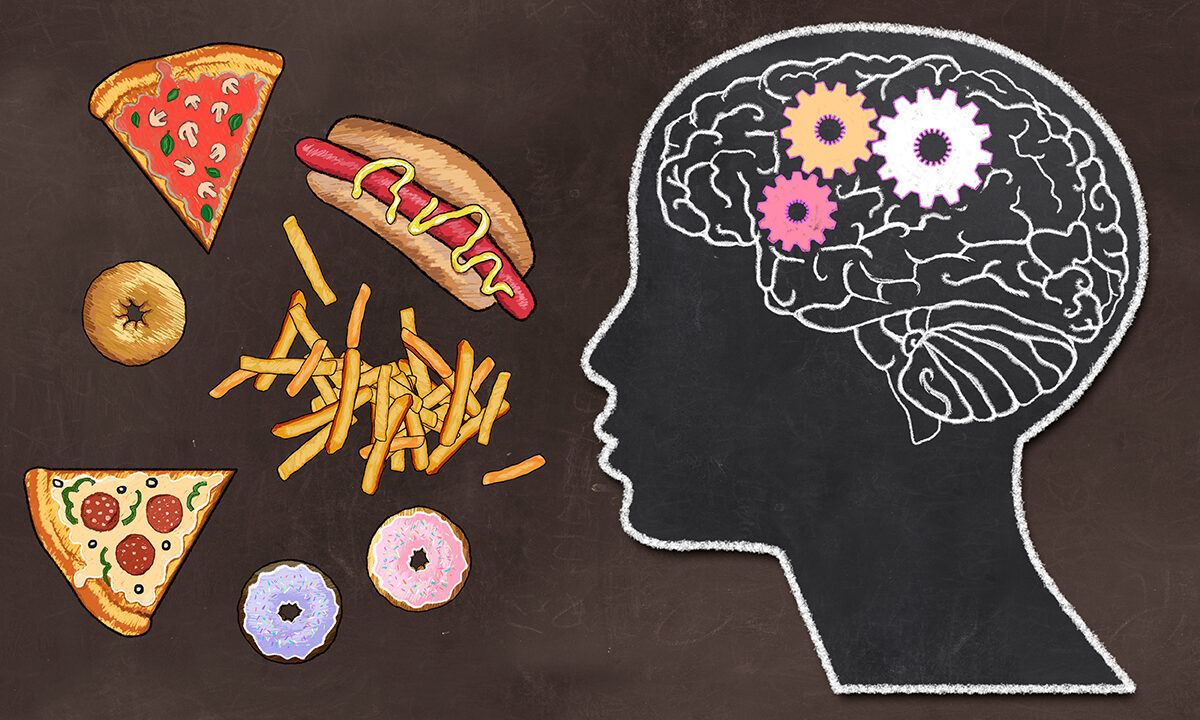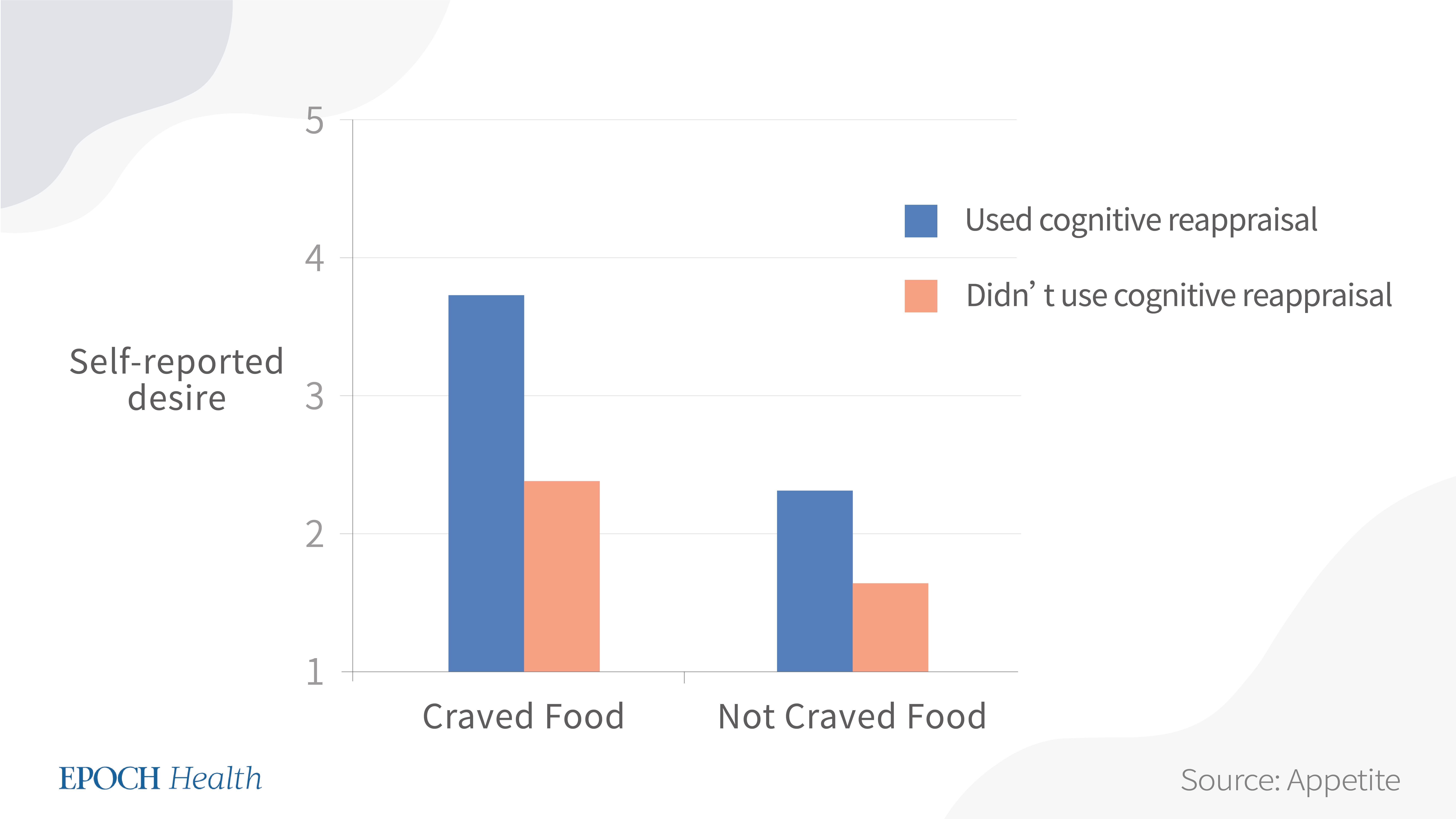


While tasty and flavorful, unhealthy, processed foods can trap us into experiencing cravings that mirror those of addiction.
In July 2022, the University of Michigan National Poll on Healthy Aging asked a national sample of adults aged between 50 and 80 about symptoms of addiction to highly processed food and looked at how these symptoms related to their physical and mental health.
Researchers claim that highly processed foods like sweetened beverages, chips, and fast food can be addictive for some people, just like cigarettes and alcohol.
The survey results showed over one in eight meet the criteria of addiction to highly processed food in the past year, and 44 percent showed at least one symptom.
The most common symptoms were:
About 12 percent of respondents reported that their eating behavior caused them distress at least two to three times a week. Some said their intake of highly processed foods caused significant problems in their life.
The findings showed that women were over twice as likely as men to meet the criteria for addiction to highly processed food.
There was also a connection to mental health.
Participants who rated their mental health as fair or poor were at least three times more likely to meet food addiction criteria compared to those who reported excellent, very good, or good mental health. People who felt isolated from others were also more likely to meet the criteria for food addiction.
Neuropsychologist Sanam Hafeez, who holds a doctorate in psychology and is the director of Comprehend the Mind and a professor at Columbia University, said there are three factors involved in food addiction.
“Happiness, sadness, despair, stress, or loneliness often leads to what we call ‘emotional eating,’” Emily Feivor, a registered dietitian at Long Island Jewish Forest Hills, part of Northwell Health in New York, told The Epoch Times.
People who become addicted to food may eat to enhance positive emotions and reduce negative emotions. “For example, you might eat a pizza to ‘reward yourself’ for an accomplishment, but you might also eat a pizza because something negative happened and ‘you deserve it,’” Hafeez explained.
Research shows a significant association between food addiction and negative emotional states like depression and anxiety.
When we are feeling down or low-energy, we may gravitate toward something sweet. High-stress situations or a time of needed comfort may have us turning to carbs.
Rather than abstaining entirely from foods we gravitate toward, Feivor advised, we should instead work on finding a less-unhealthy alternative to maintain our nutrition and wellness goals while sticking to appropriate portions.
Consuming foods high in carbohydrates, fat, sugar, salt, and artificial sweeteners can cause an addictive-like process for some individuals, pointed out Hafeez. “This activates the reward-processing regions in the brain, which release serotonin and dopamine,” she said.
An overstimulation of the dopamine reward circuit can provide a “high,” similar to what’s experienced from drugs or alcohol.
Another factor that supports the development of food addiction is genetics. Research has shown that some people have genes putting them at a higher-than-average risk of developing any type of addiction, including food addictions.
A new study from Imperial College’s School of Public Health finds that highly processed foods are linked with increased cancer risk.
Researchers classified these foods as those that include carbonated drinks, cereal, prepackaged meals, and mass-produced and packaged bread.
They emphasized that these foods are not typical ingredients used in household cooking but instead consist of derived ingredients, like high fructose corn syrup or modified starch.
After studying 200,000 middle-aged participants over 10 years, researchers found that people who eat highly processed foods were at a significantly higher risk of potentially deadly cancers. Among them, ovarian and brain cancers were more likely to develop in people who ate ultra-processed food. However, ovarian and breast cancers were more likely to be fatal for this population.
“Our bodies may not react the same way to these ultra-processed ingredients and additives as they do to fresh and nutritious minimally processed foods,” study first author Dr. Kiara Chang, said in a statement.
High consumption of highly processed food is also significantly associated with an increased risk of obesity, diabetes, and heart disease.
A review published in The American Journal of Lifestyle Medicine claims most don’t understand “the depth and breadth” of the harm, as many in our society eat a diet worse than the dangerous standard American diet.
Food addiction isn’t something that goes away on its own.
“To overcome it, you must start by looking to yourself to make changes,” Hafeez advised. It can be a challenging time, so ensuring you have a support system or even a mental health specialist can be beneficial to your success.
Hafeez recommended eliminating alcohol and caffeinated beverages from your diet to help reduce poor eating choices, as these substances typically can trigger cravings.
Research from Cornell University confirmed that caffeine can make foods taste less sweet, and encourage greater sugar consumption. Another study suggests alcohol could stimulate nerve cells in the brain that increase appetite.
Simply ditching caffeinated or alcoholic beverages and drinking water instead could help keep cravings at bay.
Introducing healthier food options into your diet will also help. Over time, your body will “get used to avoiding junk food” and having fewer unhealthy food cravings, Hafeez said.
Healthy food actually makes your body feel light, while processed food makes it feel heavy.
This is because, for people who often eat junk food, after their body finishes digesting food, it will start to “mobilize waste and repair the damage,” explained review author Dr. Joel Fuhrman from Nutritional Research Foundation.
This process makes you feel fatigued and gives you headaches and anxiety.
But if you eat nutritious food, you feel nothing. Also, you will have “no desire to eat again until glycogen stores are nearly exhausted.”
Cognitive reappraisal is usually used to reduce negative emotions. But researchers find it can also be quite effective for food addiction.
When seeing junk food, you can think of the negative consequences of eating it—the food may cause cancer or make me fat, or think of something that may be wrong with the food, like someone sneezed on it or the cook used dirty hands to package it. These thoughts can help to significantly reduce the desire to crave these foods.
Hafeez said being mindful of what you eat is critical.
“Seeing how many calories are in food items you crave and understanding how much exercise it takes to eliminate those calories can help overcome food addiction,” she said.
Just as we have become more in tune with mental health in general, physicians need to pay more attention to patients whose weight or lab results indicate that they may be eating in a manner consistent with food addiction.
“All too often, a physician will say, ‘it would be great if you could cut down on the sugar,’ and then send the patient on their way,” said Hafeez.
Many people can’t afford a nutritionist, so making general practitioners more aware of the psychological reasons behind food addiction, how to counsel patients, and the importance of providing outreach in their community is crucial.
“As with any addiction, if people could stop because they were advised to, they would do so,” Hafeez concluded. “More support and awareness is needed.”

